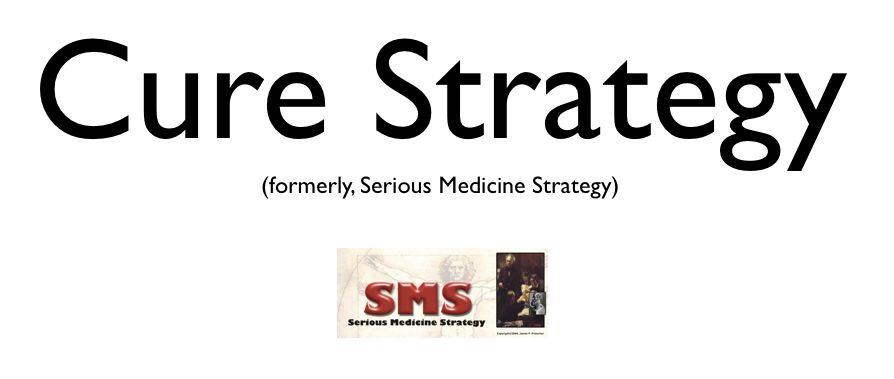The Wrap's Lucas Show reports that Warner Brothers has purchased the movie rights to Stephan Zlotescu's "True Skin,"based on a four-minute video posted online just a week ago. The video, now to be a film, is set in a "Blade Runner"-ish not-too-distant future. That is a world of extremes--great power, but also great squalor.
In particular, it shows a world of manufactured body parts, coupled with the advances in medical technology and therapy to to make all those parts work properly on a human body. Yet at least some of that technology seems only to be available on the black market; hence the film, at least the four minutes we have seen, is set in Bangkok.
Thus we see a sign in front of what seems likely to be a strip joint, declaring, "Seriously, not hiring naturals." As in, only the bodily enhanced need apply.
And at the risk of reading too much into just a snippet, the large point seems to be this: Be part of the body revolution, or be left behind. As the central character, in need of a total physical remake, says, "This trend is here to stay. I mean, let's face it... no one wants to be entirely organic. No one wants to get sick and old and die. My only choice was to enhance."
And so that's what he does--that's him, below, taking his face apart and getting a new one:
The idea of remanufacturing the human body is hemmed in by taboos--taboos against the desecration of the dead, taboos against creating another Frankenstein's monster that could run amok, taboos of personal fear and repulsion--and rightfully so. Science cannot, and should not, flourish if it is seen as anathema to cherished human values.
Yet at the same time, remaking the human body is also what modern medicine is about. After all, what are prosthetic devices if not remanufactures of a kind? And devices such as pacemakers? Or, for that matter, false teeth? Or even eyeglasses? Or, to take a more ambitious view of bodily remaking, any kind of surgery, or even vitamins. All of these interventions are remakings of a kind--and we should all be thankful for them.
The advance of technology will not stop. And so blanket governmental efforts to control healthcare research-- in the name of either moral restrictions or monetary limitations--are often destined to fail. Why? Because of the basic life force that animates all of us. Being healthy is a powerful human goal. And so people will find ways--perhaps only in semi-outlaw places such as Bangkok, but in places nevertheless--to use technology to better themselves and their health.
Once again, the challenge is to enable medical progress while also preserving ethical standards. The debate over stem cell research is an example; there is much opposition to the use of embryonic stem cells, but little or no opposition to the use of umbilical and pluripotent stem cells. Interestingly, the 2012 Republican Party Platform strongly endorses research on those non-embryonic stem cells.
Still, looking ahead, if law or government policy--including such issues as regulation, litigation, price controls, or simple lack of interest--comes down against medical progress, then, over time, such research will go overseas--or it will go rogue.
And such going rogue is the essence of the "cyberpunk" genre of science fiction--and "True Skin" is obviously in that tradition. In the cyberpunk world, going all the way back to William Gibson's Neuromancer in 1984, the driving idea is that techno-forces--most notably, the internet and digital technology--are tearing the old society apart, for better and for worse. In the cyberpunk vision, it's often too late to preserve the old order. And that won't be easy; as Gibson, author of Neuromancer, once put it, "The future is already here: It's just not evenly distributed."
Also, we might note that the sudden attention paid to "True Skin" is an interesting development; after all, as a genre, science fiction is generally seen as somewhat out of fashion. Half a century ago, sci-fi writers such as Isaac Asimov, Ray Bradbury, Arthur C. Clarke, and Robert Heinlein all seemed to be well within the mainstream of fiction, and a TV show such as "Star Trek" could run on network TV. But in the subsequent decades, sci-fi has been marginalized; the Sci-Fi channel, for example, changed its name to the more omnidirectional "Syfy."
To be sure, there was "science fiction," such as "Star Wars," but there was certainly no science in that movie. In truth, it was more of a fantasy film--a "Lord of the Rings" with lasers. It had plenty of imagination, to be sure, but it contained no speculations about the future. Indeed, it was set "a long time ago in a galaxy far, far away"--so much for the future.
But while "True Skin" is fiction, the trendlines it points to are very real. And thus the question is how to advance them in an ethical manner. Science and its benefits--including medical benefits--ought to be the commonwealth of humanity.
Yet "True Skin" puts on notice: The future is coming, whether we are ready or not. So it's best to be ready. Because the dream of science-based physical and medical transcendence will never be denied, for as long as people are human--and probably after that, too.




